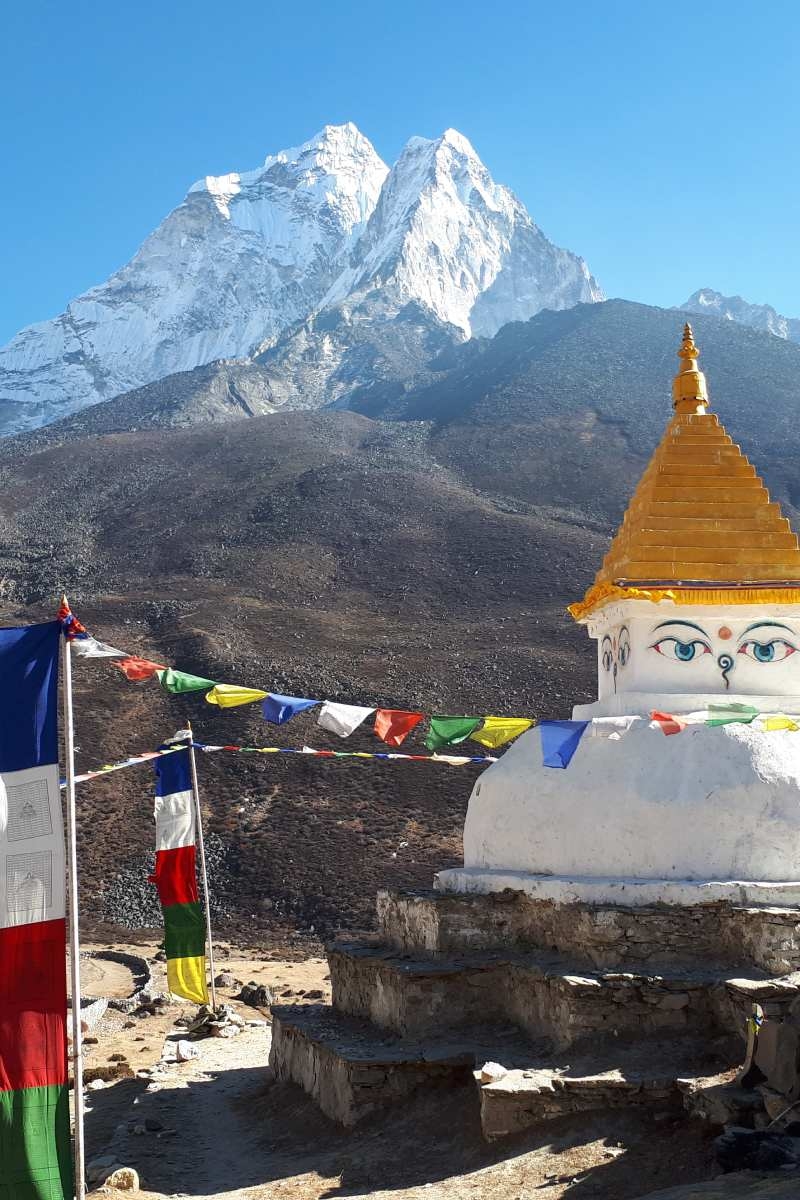Trip Difficulty: Challenging
Activities: Trekking / Hiking
Accommodation: Hotel and Mountain Guesthouse
Group Size: Min. pax: 2 | Max. pax: 10
Best Season: March to May / September to November
Highlight
- Experience the fabulous views of Annapurna I, Dhaulagiri, Manaslu, Machhapuchhre, and other mountains.
- Start with a scenic bus drive on a winding highway to Besisahar.
- Trek along the bold trail sided by forested areas, several rivers, streams, and waterfalls.
- Explore the distant and rural villages of the Annapurna Region.
- Travel across the natural richness of the Annapurna Conservation Area.
- Climb the daring Thorung La Pass, one of the most popular passes.
- Be able to do one of the prestigious circuit treks in the world.
- Run into monasteries, gompas, mani walls, prayer flags, and temples.
- Do a hike to Poon Hill for the vast mountain panorama and breathtaking sunrise view.
- Learn about the culture and lifestyle of the minimal life-living locals.
Overview
When it comes to the best trekking trails in the world, the list is incomplete without Annapurna Circuit Trek. Yes, you read it right.
The Circuit Trek of Annapurna is one of the finest long treks globally. Annapurna Circuit, the circuit you are thinking of, is a long beautiful path that goes around the heavenly Annapurna Region. One trekking on this circuit encounters and collects the experiences of numerous beautiful things.
You will begin by diving into the countryside of Nepal. Then slowly, with every step ahead and increase in altitudes, the happenings change. The trekkers admire Annapurna Circuit Trek for its adventurous trail that goes through the scenic part of Nepal.
The trek is not just about long walks but also about the picturesque Annapurna Region mountains, lush greenery, outstanding landscapes, fresh rivers and streams, lovely people of the region, and more. This trek probably offers more than the trekkers ask for. It is that much worth doing.
Moreover, the Annapurna Circuit Trek is a long journey as compared to other Annapurna Region Treks. Choosing it is like wishing to explore most of the region in one trip. Starting from Besisahar, the trek will go through the scenic terrains of the Manang Region to the dramatic Thorung La Pass(5,400m).
Later, the walk will pass by popular cultural and traditional stops like Muktinath Temple, a sacred Buddhist and Hindu site, Kagbeni, Jomsom, Pisang, Chame, Tatopani, and others. Plus, it reaches Poon Hill, the fabulous place for 360 degrees mountain panorama and sunrise in Nepal, too.
All of those make Annapurna Circuit Trek a sound deal. It is unquestionably the best trekking option to do in Nepal.
After knowing about it, you surely cannot keep yourself away from the trail of the trek, can you?
Outline Itinerary
Day 1: Arrival in Kathmandu and Transfer to the Hotel (1400m- 4657ft)
Day 2: City Sightseeing and Trek Preparation
Day 3: Drive from Kathmandu to Besisahar (760m- 7hours)
Day 4: Trek from Besisahar to Bahundanda (1,310m- 6hours)
Day 5: Trek from Bahundanda to Jagat (1290m- 6hours)
Day 6: Trek from Jagat to Dharapani (1920m- 5hours)
Day 7: Trek from Dharapani to Chame (2630m- 6 hours)
Day 8: Trek from Chame to Pisang (3,115m- 5hours)
Day 9: Trek from Pisang to Manang (3,540m- 6hours)
Day 10: Acclimatization Day at Manang
Day 11: Trek from Manang to Yak Kharka (4050m- 5hours)
Day 12: Trek from Yak Kharka to Thorong Phedi (4525m- 5hours)
Day 13: Trek from Thorong Phedi to Muktinath via Thorong La Pass (5416m- 9hours)
Day 14: Trek from Muktinath to Marpha (2665m- 6hours)
Day 15: Trek from Marpha to Ghasa (2000m- 6hours)
Day 16: Trek from Ghasa to Tatopani (1160m- 6hours)
Day 17: Trek from Tatopani to Ghorepani (2775m- 8hours)
Day 18: Trek from Ghorepani to Tikhe Dhunga via Poon Hill (1480m- 7hours)
Day 19: Trek from Tikhedhunga to Nayapul and Drive to Pokhara (822m- 5hours)
Day 20: Drive back to Kathmandu from Pokhara (7hours)
Day 21: Departure from Kathmandu











